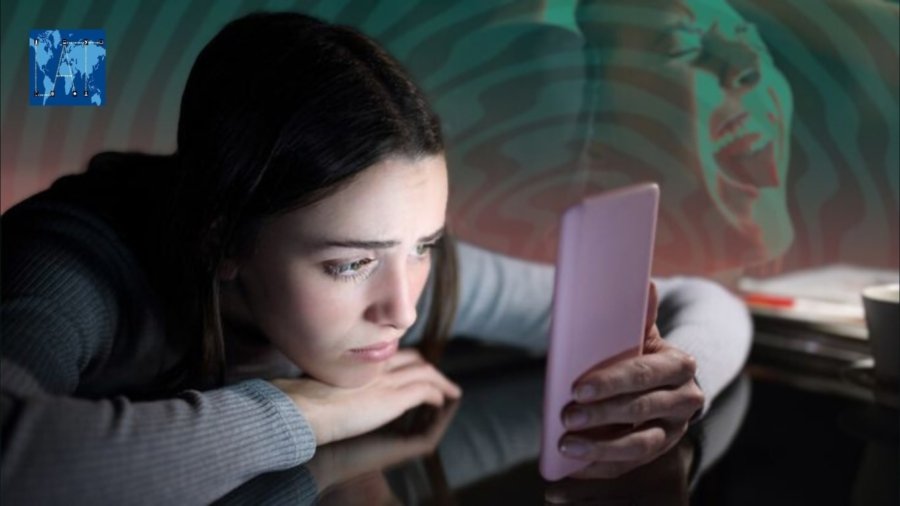Introduction
In the digital age, social media platforms are an essential part of our daily lives. From connecting with friends and family to staying updated on global events, platforms like Instagram, Facebook, and TikTok shape our daily experiences. However, while these platforms offer numerous benefits, they also have a significant impact on our mental health. Have you ever wondered how social media influences our thoughts, emotions, and well-being? This blog explores the connection between social media and mental health, examining both the positive aspects and potential risks. By understanding this relationship, we can better navigate the digital world and maintain our emotional health.
Social Media Addiction
One of the most significant concerns with social media is addiction. Many people find it challenging to put down their phones or stop scrolling through feeds, even when they know they should. This constant need to check notifications and see what others are posting can lead to stress, anxiety, and a feeling of being overwhelmed. Social media apps are designed to keep us engaged for as long as possible, using features like endless scrolling and push notifications to draw us in. For young people, especially, there is a constant desire for validation through likes, comments, and shares, which can sometimes lead to emotional dependency.
The feeling of being “liked” or “followed” online can feel rewarding, but the need for this approval can take a toll on mental well-being. The pressure to maintain a perfect online image, keep up with trends, and meet expectations from followers can create feelings of insecurity and stress. Over time, this addiction can also lead to sleep disruption and decreased productivity, as many users spend hours scrolling late into the night.
The Impact of Social Media on Mental Health
Social media has a complex relationship with mental health. On one hand, it offers numerous benefits, such as providing a sense of community, fostering connections, and raising awareness about mental health issues. On the other hand, overuse can lead to mental strain and anxiety. Let’s explore how social media impacts mental health in both positive and negative ways.
Positive Effects of Social Media
- Support Networks: Social media can be a lifeline for people seeking connection and support. It allows individuals to find communities that resonate with their personal experiences. Whether it’s mental health support groups, parenting communities, or fitness challenges, social platforms help people feel understood and less alone.
- Awareness Campaigns: Social media is also a powerful tool for spreading awareness about important issues like mental health, self-care, and wellness. Messages about stress management, coping techniques, and emotional well-being reach a global audience, making it easier for people to seek help and find resources.
- Learning Resources: Platforms like YouTube, Instagram, and TikTok have a wealth of content aimed at helping people improve their mental health. From guided meditations and stress-relief exercises to advice on how to manage anxiety, these platforms offer accessible resources for anyone looking to improve their well-being.
Negative Effects of Social Media
- Stress from Comparisons: Social media often highlights the best aspects of people’s lives, leaving users to compare themselves to these idealized images. Seeing others post about their vacations, perfect relationships, or personal achievements can negatively affect self-esteem, especially when users feel like they are not measuring up to these standards.
- Mental Strain: Social media can also be a breeding ground for negativity. Online bullying, harassment, and toxic interactions are common, leading to emotional strain. Additionally, the spread of false information and unrealistic expectations can add to the mental burden, leaving people feeling confused and anxious.
- Disrupted Sleep: Excessive screen time, especially late at night, can significantly impact sleep patterns. The blue light emitted by screens interferes with the production of melatonin, the hormone that regulates sleep, making it harder to fall asleep and get restorative rest. As a result, users may experience fatigue, irritability, and difficulty concentrating during the day.
Social Media and Mental Health Issues
There is growing concern about the link between excessive social media use and mental health issues, especially among younger users. Studies suggest that overuse of digital platforms can contribute to feelings of social isolation, depression, and anxiety. Constantly being exposed to idealized versions of others’ lives can create unrealistic expectations, leading to body image issues, self-doubt, and low self-confidence.
Another common issue is cyberbullying. With the anonymity that social media provides, some individuals engage in harmful behavior, leaving others feeling attacked, rejected, or humiliated. These experiences can lead to lasting emotional damage, affecting one’s overall well-being. Additionally, the spread of misinformation and the pressure to conform to certain beauty standards or trends can exacerbate mental health struggles.
The Harmful Effects of Social Media
While there are many positives, the harmful effects of social media cannot be overlooked. Some of the key concerns include:
- Online Harassment: Negative comments, trolling, and cyberbullying are unfortunately common on many social media platforms. This type of online harassment can seriously affect emotional resilience, leading to stress, anxiety, and depression.
- Dependency: Social media can create a sense of dependency, where users feel they need to check their devices constantly. This can disrupt daily activities, interfere with work or school, and reduce face-to-face interactions with friends and family.
- Spread of False Information: Misinformation is a significant issue on social media. False health advice, misleading news stories, and rumors can lead to confusion and anxiety. The rapid spread of such information can make it difficult for users to distinguish between fact and fiction, adding to mental strain.
- Scams and Fraud: Another concern is the rise of online scams and fraud. Social media platforms are often used by fraudsters to target vulnerable users, whether through fake advertisements, phishing schemes, or deceptive posts. These scams can leave people feeling betrayed, anxious, and financially hurt.
Ways to Improve Mental Health
So, how can we use social media responsibly and protect our mental health? Here are some strategies to help you maintain a healthy relationship with social media:

- Set Time Limits: One of the most effective ways to avoid overuse is to set limits on how much time you spend on social media each day. Many platforms offer tools that allow you to track your usage and set reminders to take breaks.
- Curate Content: Follow accounts that inspire and uplift you. Surrounding yourself with positive and motivational content can improve your mood and mental outlook. It’s important to unfollow or mute accounts that make you feel bad about yourself.
- Unplug Regularly: Taking breaks from social media is essential for mental health. Whether it’s a few hours, a day, or a weekend, stepping away from digital platforms allows you to recharge and refocus on offline activities and relationships.
- Seek Professional Support: If you find that your online habits are negatively affecting your mental health, it may be helpful to talk to a therapist or counselor. Professional support can help you address underlying issues like anxiety, depression, or stress.
- Focus on Balance: While social media can be a great way to stay connected, it’s essential to prioritize offline relationships as well. Spend time with loved ones, engage in physical activities, and pursue hobbies that bring you joy.
Conclusion
Social media can offer many opportunities for connection, learning, and growth. However, it also comes with risks that can affect our mental health. By understanding the impact of social media on our emotions and behaviors, we can make informed choices about how to engage with digital platforms. Remember, the key is balance—using social media to enhance your life while staying mindful of its potential negative effects. Be aware of your habits, set boundaries, and always prioritize your well-being.
FAQs
- What is social media and mental health?
Social media is where people use apps like Instagram and TikTok to share and connect online. Mental health is about how you feel and think, and social media can affect it in both good and bad ways. - How does social media affect mental health?
Social media can help you feel connected and learn new things, but it can also make you feel stressed or sad. Comparing yourself to others or spending too much time online can hurt your emotions. - What is the main cause of social media addiction?
Social media apps are made to keep you scrolling with things like endless feeds and notifications. Many people also get hooked because they want likes and comments to feel good about themselves. - Why is social media bad for mental health?
It can make you feel bad by causing stress, insecurity, or anxiety, especially if you compare yourself to others or deal with mean comments. Too much time online can also mess up your sleep and real-life relationships. - How can you improve your mental health?
Spend less time on social media and follow accounts that make you feel happy. Take breaks, do things offline, and talk to someone you trust if you’re feeling overwhelmed.

